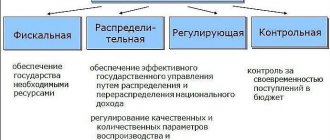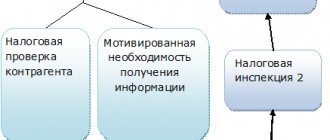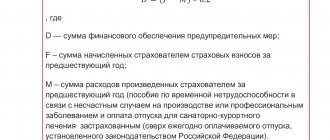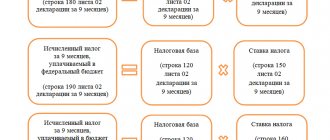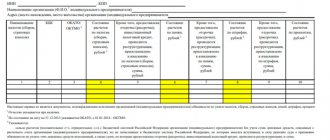Tax control measures include conducting tax audits, requesting explanations and documents, inspecting premises, and so on. They are mentioned in Article 82 of the Tax Code of the Russian Federation. One of the special forms of tax control is additional measures , which can be assigned at the discretion of the management of the tax authority. Their goal is to confirm and consolidate the conclusions of the Federal Tax Service employees who conducted the inspection. As part of such activities, inspectors seek to collect facts that will confirm the commission of an offense.
We invite you to get acquainted with the answers of Tax Service specialists to 4 important questions related to additional control measures. They are given in the letter of the Federal Tax Service dated October 19, 2022 No. ED-4-2 / [email protected]
What are additional activities and when are they assigned?
Additional tax control measures are discussed in paragraph 6 of Article 101 of the Tax Code of the Russian Federation. This includes requesting documents, questioning witnesses and conducting an examination . Such measures are appointed by decision of the head of the tax authority or his deputy. The basis for making a decision is the need to obtain additional evidence that would confirm or refute the fact that the taxpayer committed a violation.
The period for carrying out such activities is a month for a regular audit, and 2 months for an audit of a consolidated group of taxpayers.
The aforementioned activities are scheduled before the tax audit is completed and a report is drawn up and handed over to the taxpayer. And also before its materials are reviewed by the management of the Federal Tax Service.
What about the deadlines?
Additional measures are not allowed to be carried out for more than one month (two - when checking the State Tax Committee or a foreign company registered under clause 4.6 of Article 83 of the Tax Code of the Russian Federation). Keep in mind: inspectors cannot increase this period under any circumstances (letter of the Ministry of Finance of Russia dated November 21, 2018 No. 03-02-07/1/83852).
However, officials are convinced that violation of these deadlines does not lead to the unconditional cancellation of the decision of the Federal Tax Service made based on the results of the inspection. The conclusion follows from the provisions of Article 101 of the main tax document (letter of the Ministry of Finance of Russia dated March 23, 2018 No. 03-02-07/1/18400, Federal Tax Service of Russia dated March 6, 2018 No. ED-4-2 / [email protected] ).
There is never too much additional tax control: the RF Armed Forces agreed
Read more…
Indeed, if the auditors’ delay in the process is their only mistake, it is unlikely that they will be able to get the inspection’s final decision overturned. This conclusion follows from the established judicial practice, which the tax service drew attention to in letter dated January 10, 2019 No. ED-4-2/55. Nevertheless, the Federal Tax Service of Russia in the same clarification calls on fiscal officials to comply with all procedural deadlines in order to avoid inefficient use of resources and an increase in requests and complaints. In addition, such roughness may complicate the collection of taxes, penalties, and fines by force. The deadlines for taking these measures do not shift, and due to delays by the auditors of the design documentation, they are likely to be missed (clause 31 of the Resolution of the Plenum of the Supreme Arbitration Court of the Russian Federation dated July 30, 2013 No. 57).
But keep in mind that if the inspectors manage to file a claim in court for debt collection on the last day of the six-month period provided for in paragraph 3 of Article 46 of the Code, they will have to pay off the budget (Resolution of the Administrative District of the Far Eastern District dated October 16, 2018 No. F03-4140/2018, upheld by the Determination RF Armed Forces dated December 28, 2018 No. 303-KG18-22204).
And further. Evidence requested after the end of the period specified in the decision on additional measures will not be taken into account. This is emphasized in paragraph 27 of the same 57th Resolution.
note
It happens that the decision to conduct a tax audit does not indicate specific additional tax control measures. But, according to the judges, such a document still meets the requirements of paragraph 6 of Article 101 of the Tax Code of the Russian Federation and cannot be declared invalid (Resolution of the Administrative Court of the East Siberian District dated May 5, 2017 No. F02-1246/2017).
Paragraph 6 of Article 101 of the Code stipulates that documents can be requested as a preliminary investigation (both from the person being inspected and from his counterparties), interrogation of a witness and examination. Which of these actions to resort to, how many times and in what volume is up to the Federal Tax Service to decide. This is noted not only by employees of the financial department (letter dated July 15, 2016 No. 03-02-07/1/41426), but also by servants of Themis. Take, for example, the Decree of the AS of the Ural District dated January 20, 2017 No. F09-10912/16. It emphasizes that it is the inspectors who determine the need and scope of certain additional control measures. As for the taxpayer, his opinion and desires do not matter.
Each CD is drawn up as required by the Tax Code of the Russian Federation (resolution on conducting an examination, protocol of interrogation of a witness, etc.). Similar actions are carried out in the general manner, that is, in the same way as during the inspection itself (letters of the Ministry of Finance of Russia dated 06/19/2009 No. 03-02-07/1-321, dated 03/06/2009 No. 03-02-07/1-113) .
The list of activities mentioned is exhaustive. However, the arbitrators give the auditors the go-ahead for some other related actions:
- inspection of premises. In Resolution No. F04-5098/2018 dated December 24, 2018, the AS of the West Siberian District accepted the inspection protocol as evidence that meets the requirements of Article 75 of the Arbitration Procedure Code of the Russian Federation. The document was drawn up correctly - with the permission of the manager, with the participation of witnesses. The organization’s argument that the inspection was carried out by inspectors in violation of paragraph 6 of Article 101 of the Tax Code of the Russian Federation was rejected by the court;
- attracting a specialist. The provisions of Article 96 of the main tax document do not limit officials from attracting a specialist to participate in additional control measures (resolutions of the Volga District AS of February 14, 2017 No. F06-17683/2017 and of the Ural District of May 15, 2019 No. F09-2143/19);
- seizure of documents. The court considered the decision of the Federal Tax Service on seizure to be motivated (the papers were required for the examination appointed within the framework of the design documentation). In form and content, it meets the requirements of Part 1 of Article 94 of the Tax Code of the Russian Federation. The seizure was carried out by authorized inspection officials in the presence of witnesses and representatives of the company being inspected. The fact that the company submitted the documentation voluntarily does not matter. Fiscal authorities have the right to seize the originals if the available copies are not enough for them (see Resolution of the Volga-Vyatka District Administration of March 21, 2018 No. F01-351/2018, F01-773/2018). In another case, the servants of Themis also considered that the inspectors who carried out additional measures had grounds for seizing the original documents. One of them is sending these papers for examination (Resolution of the Federal Antimonopoly Service of the North Caucasus District dated January 27, 2012 No. A53-27001/2010, left in force by the Determination of the Supreme Arbitration Court of the Russian Federation dated May 17, 2012 No. VAS-5533/12). The Federal Tax Service of Russia, in paragraph 10 of letter No. AS-4-2/9355 dated May 23, 2013, noted that arbitration practice on this issue is developing in its favor, citing a number of verdicts. However, at the same time, officials emphasized that documents can be confiscated only in the cases listed in paragraphs 4 and 8 of Article 94 of the Tax Code of the Russian Federation. In particular, when copies of documents of the person being inspected are not enough to carry out tax control activities.
What document is used to document the results?
The results of additional measures must be documented in a special document - an addition to the tax audit report . This is stated in paragraph 6.1 of Article 101 of the Tax Code of the Russian Federation. This rule, like several others, came into force on August 3 and applies to inspections that were completed after September 3, 2018.
The document is generated within 15 working days after the end of the additional event. It needs to reflect the following parameters:
- start and end date of the event;
- its description;
- evidence that was obtained during its course.
Expected changes in legislation
The only grounds for canceling a decision by a tax official can be violations of the conditions for reviewing tax audit materials, which include:
- failure to provide the taxpayer with the opportunity to take part in the consideration of the case materials, both personally and through his representative;
- failure to provide the taxpayer with the opportunity to provide explanations.
Currently, the State Duma is considering bill No. 249505-7, according to which tax authorities will have to draw up an act based on the results of additional measures. In this case, the taxpayer will have the opportunity to freely familiarize himself with the act and submit his written objections. It is also believed that such a bill will allow tax authorities to make a more objective decision on the results of an audit.
Such an act will have to contain the start date and end date of additional measures and show the essence of the offense. Such a certificate must be handed over to the taxpayer within 5 days from the date of completion of additional measures. Tax authorities will not attach all documents that were submitted by the taxpayer himself to the report. The act must be transferred to the taxpayer against receipt, or in another way, but on the condition that the payer confirms its receipt.
If the taxpayer evades receiving such a report, tax authorities can send it by registered mail to the individual.
In addition to the above, this bill should reduce the time frame for conducting desk audits. Let us remind you that today the term of the “camera chamber” is 3 months. It is proposed to reduce it to one month.
Thus, having come under an on-site inspection by the tax authorities, the taxpayer organization, it is important to control the timing of this procedure. When prescribing additional measures, the person being inspected must provide the required documents and not resist other measures. Due to the fact that the tax office is currently not obliged to provide the audited person with a report on additional measures, the taxpayer must independently express a desire to familiarize himself with the results of additional measures. If the auditee is not satisfied with some aspects of the result of the measures, he can file a tax objection. The main thing is that relevant evidence be attached to this objection.
Could an additional activity reveal new violations?
No, he can not. The point of additional activities is to find facts confirming already identified offenses . In clause 6.1. Article 101 of the Tax Code of the Russian Federation states that additional evidence should be indicated in the addition to the inspection report. This implies evidence in relation to those offenses that are indicated in the tax audit report itself.
The same conclusion was made in the resolution of the Constitutional Court of July 14, 2005 No. 9-P and the resolution of the Plenum of the Supreme Arbitration Court of July 30, 2013 No. 57. They indicate that additional measures are aimed at collecting evidence on those violations that have already been discovered.
Even if during additional measures some other violations are revealed, inspectors should not include them in addition to the report.
Desk tax audit
A desk audit of a tax return or calculation is carried out by the tax office on the basis of the declaration, accounting data and other documents. Its purpose is to check the correctness of the data reflected for tax calculation. The check is carried out automatically using control ratios . If the system identifies discrepancies or inconsistencies, tax authorities will ask you to provide explanations and documents confirming the transactions.
In what cases are documents requested?
- a benefit is declared in the declaration (for example, it may be a reduced or zero tax rate);
- the DAM indicates amounts that are not subject to taxation or reduced tariffs;
- the VAT return declares tax refundable;
- an updated declaration is submitted, after 2 years with a reduction in the amount of tax.
There is no need to wait until you receive a request from the Federal Tax Service; prepare the necessary package of documents in advance. It is possible (and much easier) to respond to a request electronically if you use the services of EDI operators to submit reports. Therefore, you can immediately collect the necessary copies of documents (scans) into a folder, and then simply send it in response to the tax authorities.
In addition, arm yourself with templates for responding to private queries.
Example : if you have regular discrepancies between the calculation of insurance premiums and 6-NDFL in terms of taxable payments, for example, dividends (they are subject to personal income tax, but not subject to contributions), you can immediately compose the text of the letter and change only the dynamic information in it - numbers documents, dates and amounts. This way you will respond to the request faster and without errors.
All cases where documents may be requested as part of a desk audit are provided for in Art. 88 Tax Code of the Russian Federation.
What other documents are requested?
It is worth noting that when checking a claimed VAT or property tax benefit, tax authorities may request the submission of an electronic register of documents confirming the right to benefits. Next, they determine the volume of documents that need to be submitted, but not less than 50% of the total volume.
If you do not submit the register or submit it in paper form, the tax authorities will require the entire volume of documents regarding the benefit.
The register files and the procedure for filling them out can be found in the order of the Federal Tax Service of Russia dated May 24, 2021 No. ED-7-15/ [email protected]
When to submit
The deadline for fulfilling the requirement is 10 working days.
But before preparing the requested documents, check:
- Has the audit period expired, since you have the right not to submit documents beyond this period, except in cases of additional tax control measures (clause 6 of Article 101 of the Tax Code of the Russian Federation).
- Have you not previously submitted the documents specified in the request? If yes, we notify the inspectors of this fact and do not send the documents again (Clause 5, Article 93 of the Tax Code of the Russian Federation).
What additional activities are carried out?
In addition to requesting documents, tax officials, as part of a desk audit, can:
- request clarification on identified discrepancies;
- invite the manager or chief accountant to the tax office to give an explanation;
- request documents regarding your organization from third parties;
- interrogate persons who are aware of the circumstances of the inspection.
Interrogations, conversations with management, company employees and contractors are signs that the tax office has discovered some serious inconsistencies or questionable transactions in the reporting. For example, a VAT deduction has been declared, but the supplier’s supply documents are not reflected in the declaration. Or the counterparty is on the “black list” and is considered to be unscrupulous.
In this case, not only increases the risk that the Federal Tax Service will urgently offer to clarify declarations and pay additional taxes, but also that tax authorities will come to the company with an on-site audit .
It’s a big mistake to think that all preliminary measures (calling the Federal Tax Service, requesting documents, counter checks, etc.) do not require special attention, that’s when they come... When they come to you, it will be more difficult to protect the interests and rights of business, because the tax authorities already have an evidence base will be collected , which you yourself will provide to them.
IAS clients who have switched to outsourcing accounting are reliably protected during tax audits. Their accounting is in the hands of professionals who are also ready to promptly provide advice on accounting and taxation.
How to complete a desk audit
The desk audit lasts three months. If violations are detected, a report is drawn up within 10 days, to which you have the right to submit objections. 1 month is given for this. And then, taking into account the objections, a decision is made to hold (or refuse to hold) accountable for committing a tax offense.
If no violations are found during the inspection, then no documents based on the inspection results are issued.
Does the Federal Tax Service have the right to assess additional taxes after additional measures have been taken?
There is a resolution of the Plenum of the Supreme Arbitration Court of the Russian Federation dated July 30, 2013 No. 57, which states: after a decision has been made based on the results of an inspection, the Federal Tax Service cannot change it in such a way that it worsens the position of the company or individual entrepreneur being inspected . In other words, additional taxes cannot be assessed.
However, this is a general case, and there are exceptions to it in judicial practice. An example is the resolution of the AS of the Ural District dated April 23, 2015 No. F09-1929/15. When filing an objection to the act, the taxpayer submitted documents that were not available to the inspectors during the on-site inspection. The study of these documents led to an increase in additional charges.
The taxpayer went to court, but it was supported by the tax authority. The judges indicated that the documents presented were related to violations that were identified during the inspection. And additional charges made on their basis are legal , since otherwise the taxpayer would have avoided paying tax on the taxable item that he had hidden. The Supreme Court, by its ruling of August 20, 2015 No. 309-KG15-9617, upheld the said decision.
Interrogations, inspections and new control methods: how to communicate with the tax authorities
A non-working appeal and the tacit consent of the tax authorities
One of the main trends in tax control now is the transition from post-monitoring of performance results to current automated control of operations. Now, if an inspection comes for an inspection, it comes already prepared in order to consolidate the conclusions that were made during the current control, said Pepelyaev Group partner Pepelyaev Group Federal Rating. group Antimonopoly law (including disputes) group Arbitration proceedings (medium and small disputes - mid market) group Foreign trade/Customs law and currency regulation group Land law/Commercial real estate/Construction group Intellectual property (Registration) group Compliance group Tax consulting and disputes (Tax consulting) group Tax consulting and disputes (Tax disputes) group Labor and migration law (including disputes) group Digital economy group Intellectual property (Protection of rights and litigation) group Intellectual property (Consulting) group Natural resources/Energy group Pharmaceuticals and healthcare group Financial /Banking law group Environmental law group Bankruptcy (including disputes) (mid market) group Corporate law/Mergers and acquisitions (high market) group International arbitration group TMT (telecommunications, media and technology) Ksenia Litvinova. “The position of the inspectorate, which comes out for inspection, is agreed upon with the higher tax authority. This leads to the appeal stage becoming a formality. You are filing an appeal, but you must understand that behind the scenes this body has already approved the decision,” the expert warned.
The Supreme Court determines the statute of limitations for the return of “tax overpayments”
In addition, the tax office is striving to increase the volume of “voluntary” adjustments. Therefore, incentive measures are now of great importance - communication with tax authorities even before the start of inspections. It is necessary to decide on the legal position already at the stage of the first response, the lawyer advises. “If you are writing some kind of explanation of why you entered into a deal or for what purpose you purchased services, you need to immediately take a certain position. Her change in the future looks “not very good,” Litvinova is sure. If you have questions about your counterparty, you can ask the tax authorities for information on what the suspicions are based on. This should be done before making a decision.
If it is possible to reach any agreement with the tax authority, it is better to formalize it, the lawyer is sure.
And the partner of Pepelyaev Group Pepelyaev Group Federal rating. group Antimonopoly law (including disputes) group Arbitration proceedings (medium and small disputes - mid market) group Foreign trade/Customs law and currency regulation group Land law/Commercial real estate/Construction group Intellectual property (Registration) group Compliance group Tax consulting and disputes (Tax consulting) group Tax consulting and disputes (Tax disputes) group Labor and migration law (including disputes) group Digital economy group Intellectual property (Protection of rights and litigation) group Intellectual property (Consulting) group Natural resources/Energy group Pharmaceuticals and healthcare group Financial /Banking law group Environmental law group Bankruptcy (including disputes) (mid market) group Corporate law/Mergers and acquisitions (high market) group International arbitration group TMT (telecommunications, media and technology) Andrey Tereshchenko drew attention to one of the trends favorable for taxpayers that have arisen in Russian courts in recent years - about the protection of the legitimate expectations of the taxpayer. Back in 2022, the Supreme Court indicated: if tax officials have clearly, consistently and unconditionally approved the taxpayer’s regime for a long time, then they cannot make claims against it.
Over the years, this principle has been transformed, and now “tacit acceptance” of the taxation procedure is no longer considered a basis for the taxpayer to have legitimate expectations and to recognize the tax authority’s decision on additional assessment as illegal. But even in this case, we are talking only about legal decisions of the tax authority. If they were erroneous, the principle does not protect against the possibility of a retrospective revision of the position, the lawyer said with reference to the ruling of the Moscow District Court in case No. A41-12777/2021.
Even if we have proven the fact of legitimate expectations, this can no longer become a basis for challenging additional charges. You can fight for penalties and fines, but not for the tax arrears themselves.
Andrey Tereshchenko
Tax authorities are actively inviting companies to join the tax monitoring system, said Pepelyaev Group partner Pepelyaev Group Federal Rating. group Antimonopoly law (including disputes) group Arbitration proceedings (medium and small disputes - mid market) group Foreign trade/Customs law and currency regulation group Land law/Commercial real estate/Construction group Intellectual property (Registration) group Compliance group Tax consulting and disputes (Tax consulting) group Tax consulting and disputes (Tax disputes) group Labor and migration law (including disputes) group Digital economy group Intellectual property (Protection of rights and litigation) group Intellectual property (Consulting) group Natural resources/Energy group Pharmaceuticals and healthcare group Financial /Banking law group Environmental law group Bankruptcy (including disputes) (mid market) group Corporate law/Mergers and acquisitions (high market) group International arbitration group TMT (telecommunications, media and technology) Natalya Kovalenko. In the seventh year of development of this institute, 340 companies are already participating in it, although it all started with seven. The use of tax monitoring allows you to put all documentation in order and helps set up an internal control system in the organization. Don’t forget about the accelerated procedure for refunding VAT and excise taxes and the shortened list of grounds for inspections. “No one has ever been assigned on-site tax audits. I think this will change when there is a critical mass of companies that can be checked,” the lawyer is sure. The Federal Tax Service also recognizes tax monitoring participants as bona fide taxpayers, although this is not formally stated anywhere.
But there are also ambiguous aspects. First of all, switching to tax monitoring is expensive, Kovalenko warned. In addition, its results are not protected from revision during an on-site tax audit. And in controversial situations, the tax service may take a “budgetary” approach, and then the company may regret disclosing information.
Interrogations and tax compliance
A whole session was dedicated to discussing the specifics of tax control at the conference. A trend that is characteristic of all stages of tax control is that tax authorities process huge amounts of data and documents received from various sources. The head of the practice for resolving disputes with government bodies of PwC in Russia PwC in Russia Federal Rating spoke about this. TMT group (telecommunications, media and technology) PPP group/Infrastructure projects group Intellectual property (Consulting) group Tax consulting and disputes (Tax disputes) group Natural resources/Energy group Labor and migration law (including disputes) group Pharmaceuticals and healthcare group Foreign trade activities/ Customs law and currency regulation group Compliance group Corporate law/Mergers and acquisitions (mid market) group Tax consulting and disputes (Tax consulting) group Private capital group Arbitration proceedings (medium and small disputes - mid market) 8th place by revenue 9th place by revenue per lawyer (more than 30 lawyers) 9th place by number of lawyers Raisa Aleksakhina. And government agencies are working more and more closely with each other: tax officials, in one way or another, receive information from all their fellow officials from other departments. “When submitting documents to any government agency, we must understand that it may end up on the table of the tax authorities,” the lawyer warned.
In addition, tax officials use not only information from other government agencies, but also data from any sources - even social networks. Aleksakhina expects that the role of pre-audit analysis in the activities of the tax authority will only increase.
The approaches that are demonstrated in relations with the tax authorities and the courts are distinguished by the diversity inherent in each stage of tax control. “The goals have changed. Each stage of tax control began to meet its own objectives.”
When a company has a tax gap, control measures begin immediately, including invitations to interrogations. At the beginning of 2022, the tax authority began sending out invitations to interrogations, shared the managing partner of the ADWIN Tax Boutique, Alexander Diyanov. Witness testimony plays a big role in tax disputes, so you need to come prepared for such questioning. Therefore, before going to the tax authority, you should independently analyze a transaction with a counterparty that arouses suspicion from the Federal Tax Service.
The tax authority asks questions either when it does not have any information or when it has some suspicions that it wants to confirm.
Alexander Diyanov
During such interrogations, it is worth abandoning fiction and speculation - there is no need to make any guesses. This may be reflected in the protocol, which will complicate further challenges, Diyanov warned. There is no need to rush, it is better to think about the answer and formulate it in the most specific terms. And after the interrogation, it is necessary to double-check the compliance of the interrogation protocol with the actual course of the conversation and obtain a copy of the document, the lawyer advises.
To fend off claims, it is necessary to implement a whole policy in the company, in which all documents and information on the counterparty must be collected in advance, believes Alexander Lemchik, managing partner of Lemchik, Krupsky and Partners Lemchik, Krupsky and Partners Federal Rating. group Tax consulting and disputes (Tax disputes) group Arbitration proceedings (medium and small disputes - mid market) group Foreign trade/Customs law and currency regulation group Tax consulting and disputes (Tax consulting) group Family and inheritance law group Digital economy group Bankruptcy (including disputes) (high market) group Intellectual Property (Consulting) group Corporate Law/Mergers and Acquisitions (mid market) group Labor and Migration Law (including disputes) 6th place By number of lawyers 17th place By revenue 22nd place By revenue per lawyer (more than 30 lawyers) Profile For the company, the very presence of a document that confirms such a policy will already help. This document needs to identify specific persons responsible for internal control.
You can prepare for the questions that the tax office asks when the demand arrives. But at this moment it is already quite difficult to collect something for the counterparty - it is better to do this in advance, when the relationship is just beginning.
Alexander Lemchik
International taxes: a look into the future
In recent years, Russia has revised international tax agreements with Cyprus, Malta and Luxembourg - instead of the preferential 5%, the dividend rate became 15%. And the agreement on avoidance of double taxation (DTT) was denounced with the Netherlands. Head of Transfer Pricing and International Taxation Practice TAXOLOGY TAXOLOGY Federal rating. Group Tax Consulting and Disputes (Tax Disputes) Group Tax Consulting and Disputes (Tax Consulting) Group Foreign Economic Activities/Customs Law and Currency Regulation Company Profile Lyubov Starzhenetskaya recalled that in the near future Russia may denounce similar agreements with Switzerland, Singapore and Hong Kong.
The Supreme Court exempted business heirs from paying tax
And back in December 2021, the Ministry of Finance presented a draft change to the list of offshore jurisdictions. The list of states and territories used for offshore ownership of Russian assets wants to include 57 countries, including Cyprus, Switzerland, Ireland, Malta and some US states. “This list does not completely replace the 2007 list for tax purposes. The new one will be used mainly for budgetary purposes, for example, to limit subsidies,” the expert explained. However, she added: “I am convinced that this order will have tax consequences.” Therefore, the lawyer advised to review their tax structures if they are located in jurisdictions from the new list.
The topic of “international” taxes was continued by a lawyer from the tax dispute resolution practice of Mazars Mazars Federal Rating. Alexander Grinko, who focused on the main risks in cross-border transactions of Russian taxpayers.
When providing services within a group, tax authorities check not only formal primary documentation, but also information that can confirm their specific value. Another risk is the reclassification of royalties to foreign shareholders as dividends. In case No. A33-5437/2020 I encountered this. “This case contains a rather absurd claim that if know-how was acquired by a Russian taxpayer earlier, then this is not know-how and there is no need to pay for it. This point is absurd at its core,” the lawyer noted.
In 2022, the Federal Tax Service plans to introduce a control system for cross-border transactions, Grinko recalled. Already, the Federal Tax Service receives data on the transfer of money to foreign jurisdictions from the Central Bank’s information array, and tax officials evaluate them according to three risk categories. “Cross-border transactions at the monetary level are already under the closest scrutiny,” the expert warned.
And KPMG partner KPMG Federal rating. group Tax consulting and disputes (Tax disputes) group PPP/Infrastructure projects group Land law/Commercial real estate/Construction group Corporate law/Mergers and acquisitions (high market) group Tax consulting and disputes (Tax consulting) Galina Akchurina spoke about the practice of applying Art. 54.1 Tax Code on cross-border transactions. Tax officials check the reality and purpose of the transaction, possible deliberate unreliability of the qualifications of transfers and transactions and the actual executor under the contract.
If it has already come to trial, it is important to prove that there was no intention to save taxes, so it is worth collecting evidence that the foreign counterparty paid all taxes in full. This will not prevent the application of Article 54.1, but may help in the dispute.
When we structure cross-border transactions, we need the team to have specialists, first of all, in tax legislation, as well as experts in currency control and, of course, customs specialists - if we are talking about the sale of goods outside of Russia.
Galina Akchurina
“Increasingly, we see attempts to accuse entrepreneurs of transferring money using forged documents. Such requalification may become the basis for the application of the “currency” rules of the Criminal Code,” the lawyer warned. Every second on-site tax audit takes place with the participation of law enforcement agencies, Akchurina said, so attention to cross-border transactions is the closest.
Cryptocurrencies: how to pay taxes?
More and more enthusiasts are investing in crypto assets. “This layer of investors is already faced with difficult tax issues, because the Federal Tax Service understands perfectly well: if people earn money, they need to receive money from them to the budget,” said the adviser to Lidings Lidings Federal Rating. Pharmaceuticals and healthcare group Intellectual property group (Protection of rights and litigation) Intellectual property group (Registration) Arbitration proceedings group (major disputes - high market) Intellectual property group (Consulting) TMT group (telecommunications, media and technology) Labor and migration law group (including disputes) 6th place by revenue per lawyer (less than 30 lawyers) 18th place by revenue 29th place by number of lawyers Dmitry Kirillov.
The state has not yet decided what cryptocurrency is from the point of view of civil and tax law. These are not securities, so initially any sale is subject to VAT, unlike traditional assets, on which sales tax may not be paid in some cases. Although there is a bill that exempts transactions with crypto from VAT, it has not yet reached the second reading in the State Duma and may never get there, given the current disputes between the Ministry of Finance and the Central Bank about the rules for regulating crypto assets.
There is no need to declare the cryptocurrency itself, the lawyer noted. But there are other problems - the difficulty in determining the market value of crypto assets. After all, the rate constantly floats, and there are no bodies that fix the official rate. And there is always a risk that a person may be recognized as an entrepreneur if he is engaged in cryptocurrency trading on an ongoing basis. Illegal business is subject to liability, including criminal liability, Kirillov recalled.
It is most convenient to pay taxes now, considering cryptocurrencies as financial investments. Then you can calculate the size of the tax base by subtracting expenses from income, the lawyer advised.
Our next conferences
In March, Pravo.ru will hold five conferences at once, where you can learn a lot of new things and communicate with experienced lawyers.
March 17 — Responsibility of top managers of the company: recovery of damages, subsidiary and criminal liability
March 22 — Legal challenges and opportunities in the era of sanctions
March 24 — Compliance: building an effective system in the company
March 29 — Combating corporate fraud and searching for assets
March 31 — Real estate and construction market in 2022: legal risks
- Maxim Varaksin
- Taxes



